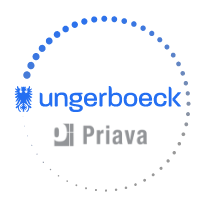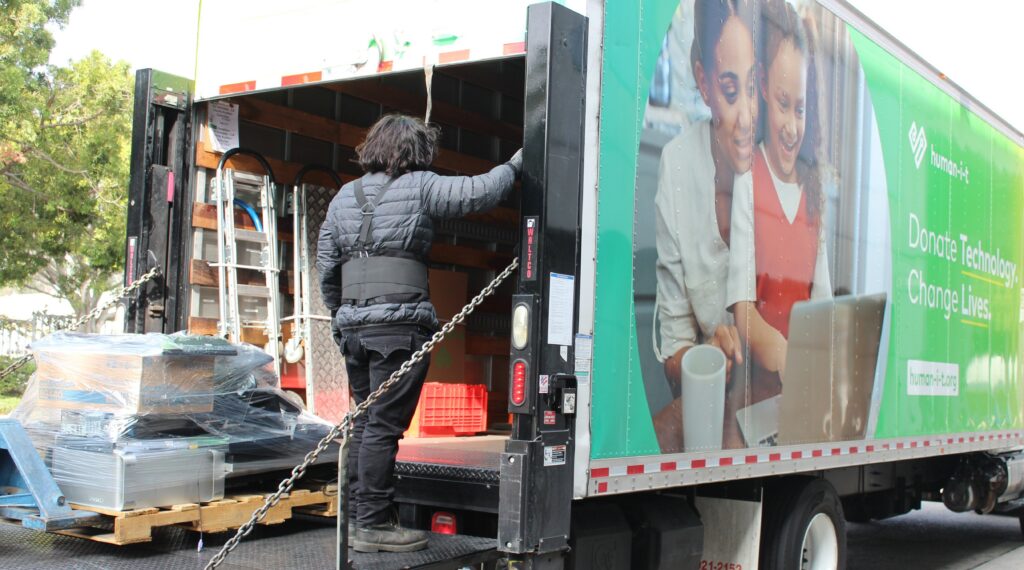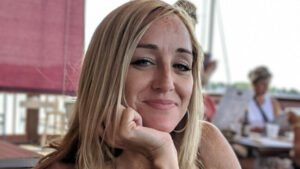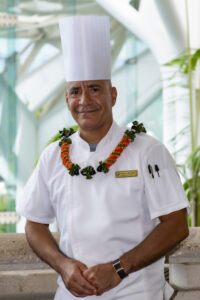Buffalo Niagara Convention Center Names Jeff Calkins as New GM
The Buffalo Niagara Convention Center has named Jeff Calkins as its new general manager after a national search.
Calkins brings extensive experience in facility management and the hospitality industry to his new role  and will report directly to Visit Buffalo Niagara and BNCC President and Chief Executive Officer Patrick Kaler.
and will report directly to Visit Buffalo Niagara and BNCC President and Chief Executive Officer Patrick Kaler.
“l have the utmost confidence that Jeff will continue the Convention Center’s outstanding reputation of excellence in customer service, food quality, and hospitality,” Kaler said. “Prior to the pandemic, the Center averaged an annual economic impact of $43 million. As meetings and events return to a frequency seen in 2019, Jeff and the BNCC team will strive to match and exceed those numbers. There’s a bright future for meetings, conventions, and events in downtown Buffalo.”
More than 150 applications from a diverse group of candidates were received. Finalists were invited to Buffalo to participate in in-person interviews with the BNCC Executive Committee, the search committee, Erie County Executive Mark Poloncarz, Deputy County Executive Maria Whyte and Dan Castle, Erie County commissioner for environment and planning.
A graduate of SUNY Cortland, Calkins’ experience includes a tenure as general manager of Rochester’s Blue Cross Arena, where he helped oversee a $50 million renovation project. He also served as vice president and general manager of The Dome Center in Henrietta, New York, where he managed all sales and business operations for the multi-purpose event space.
“The search committee recognized Jeff’s wealth of experience and industry expertise,” said Mary Roberts, VBN and BNCC chair. “We trust that his leadership will continue the tradition of excellent customer service and build upon the success of the Buffalo Niagara Convention Center moving forward.”
Ungerboeck Acquires Priava, Accelerating the Pace of Innovation for the Event Industry
By Stacie Bauer
Ungerboeck, the world’s leading event management software provider, announced that it has acquired Priava, a cloud-based venue and event management system with a wide portfolio of global customers.
This acquisition provides a platform to accelerate industry innovation and add more value for customers all over the world. Ungerboeck has seen rapid international growth in a short period of time. Acquiring Priava with its strong representation in Australia, New Zealand, and the United Kingdom gives Ungerboeck an even greater international presence.
all over the world. Ungerboeck has seen rapid international growth in a short period of time. Acquiring Priava with its strong representation in Australia, New Zealand, and the United Kingdom gives Ungerboeck an even greater international presence.
“This acquisition accelerates our objective to grow internationally,” said Fred Lazzerini, Ungerboeck Senior Vice President, International. “We’re bringing in more venues in the Ungerboeck community, and adding staff in Australia, India, and the UK which gives us growth capacity.”
By combining resources, the companies can support event professionals with a higher level of efficiency and expertise. Current and future customers can expect faster industry growth, rapid innovation, more product offerings, and additional resources designed to better serve the event business.
“This is an extremely exciting moment in Priava’s history,” said Tom Gleeson, Group CEO of Priava. “In joining forces with Ungerboeck, we will build on the momentum we have created and work together to deliver state-of-the-art venue and event management solutions to drive the industry forward.”
Customers can keep using the products and services they currently use without interruption. Both Ungerboeck and Priava will continue to support all existing customers with the same focus on success. As the product teams come together, customers can look for exciting new offerings that add value to their event business.
“Our goal is to have the breadth and scale to serve the industry better,” said Manish Chandak, President and CEO of Ungerboeck. “We welcome the Priava team to the Ungerboeck family. Together, we can rapidly develop the kinds of innovative solutions needed to succeed in the post-pandemic world.”
Stacie Bauer is Event & Sponsorship Coordinator, Marketing, for Ungerboeck.
Los Angeles Convention Center Furthers Commitment to Environmental Initiatives
By Nancy Walker
The Los Angeles Convention Center (LACC), owned by the City of Los Angeles and managed by ASM Global, the global leader in venue and event strategy and management, elevates its commitment as stewards of the environment.
The LACC recently joined JMIC’s Net Zero Carbon Events Initiative alongside 200+ event industry  organizations. The united pledge, made in November during COP26, the UN Climate Change Conference, collectively represents and demonstrates the commitment of the event industry community to fight climate change and develop a roadmap for a net zero carbon future for events.
organizations. The united pledge, made in November during COP26, the UN Climate Change Conference, collectively represents and demonstrates the commitment of the event industry community to fight climate change and develop a roadmap for a net zero carbon future for events.
Additionally, to recognize America Recycles Day 2021, the LACC teamed up alongside human-i-t for a Tech Donation Drive. During the week of November 15, 2021, the LACC helped to reduce e-waste by collecting unwanted technology and giving it a new purpose. Approximately 900 pounds of equipment (such as laptops, monitors, cell phones and power cords) were collected from employees and partners of the LACC. These items will be repaired or used for parts to create refurbished technology which is then donated to underserved communities to promote digital inclusion.
Ellen Schwartz, General Manager of the LACC commented, “As a LEED® Gold certified facility we are pleased to be associated with such distinguished organizations that enable the LACC to move the needle even further on our sustainability initiatives. We have been committed to the environment for many years now and look forward to the future as we join forces with even more organizations who align with our mission.”
Estella Flores, LACC’s Vice President of Operations added, “The LACC’s commitment toward the protection of our planet has never been stronger. We take steps every day improve our operational commitment as it relates to the environment and will not lose sight of our obligation until we are truly a net zero facility.”
Additionally, the Los Angeles Convention Center has been recognized with the Global Green Business Award 2021 for Best Meeting & Convention Facility in California by Acquisition International for its ongoing commitment sustainability efforts. In what has been named the “Decade of Action,” the Global Green Business Awards 2021 looks to distinguish and award businesses that demonstrate essential innovation in corporate sustainability to reduce carbon emissions.
Nancy Walker is VP, Sales & Marketing, for the Los Angeles Convention Center.
Lara Fox Appointed New VP of AEG Global Partnerships
Lara Fox has been appointed Vice President of AEG Global Partnerships, a division of sports and entertainment group AEG.
The AEG Global Partnerships team act as an internal agency for AEG and AEG Presents, overseeing global  sponsorship sales and activation for over 135 properties across five continents, says the company.
sponsorship sales and activation for over 135 properties across five continents, says the company.
This includes venues, sports franchises, events, tours, festivals, and digital content among other AEG holdings.
Fox will be based in AEG’s Los Angeles headquarters and will report to Andrew Klein, Managing Director, AEG Global Partnerships.
Fox will be responsible for building strategic relationships and partnerships for concert tours, festivals, venues, and other assets of AEG Presents, as well as its various subsidiaries including festivals and live events such as Coachella Valley Music and Arts Festival, Stagecoach: California’s Country Music Festival, Camp Flog Gnaw, Day N Vegas, Head In the Clouds Festival, California Vibrations Festival, Second Sky Festival, Splash House and more.
She will also manage brand deals for AEG’s network of live music venues, with a focus on the West Coast.
Fox brings more than 14 years of sales and marketing experience to the role, as well as knowledge in digital media, experiential activations, social media, branded content, editorial content, and advertising campaigns.
Fox joins AEG having spent 11 years at global media and entertainment company, Complex Networks, where she served as Vice President of brand partnerships and oversaw deals with brands like Apple, Starz, Amazon, Walmart, Target, Netflix, and EA, among others.
AEG says she was also part of the team that helped produce and create brand partnerships for the debut ComplexCon, a two-day event.
Prior to Complex Networks, Fox held roles at Condé Nast’s W Magazine and ViacomCBS, where she managed media, content, and event sponsorships for MTV.com.
Fox succeeds Caroline Burruss in the role, who took on the position in 2016.
Andrew Klein, Managing Director, AEG Global Partnerships, said: “Lara’s impressive career combined with her proven ability to drive significant revenues and build innovative partnerships with some of the biggest brands in the world, makes her a perfect fit for AEG.
“We have a one-of-a-kind global portfolio with some of the most coveted music and live entertainment assets in the world, and this is an incredibly exciting time to be joining our company.
“We are confident Lara will be an incredible asset to our business and our partners as we continue to shape the future of music and live entertainment.”
“Live music is back and going to be bigger than ever,” Fox said. “I am thrilled to have joined such a prestigious team under extremely smart executive leadership.
“AEG has the best music festivals, sports teams and facilities in the world. This is a dream job for me.”
Hawai‘i Convention Center Welcomes Hector Morales as Executive Chef
By HCC Editorial Team
The Hawai‘i Convention Center welcomes Hector Morales as its new executive chef.
Morales has 25 years of culinary leadership experience in Hawai‘i. He most recently served as the chef  de cuisine at Mauna Kea Beach Hotel on the Island of Hawai‘i. He also founded a food service consultancy, working with well-known restaurants in Hawai‘i and Nevada.
de cuisine at Mauna Kea Beach Hotel on the Island of Hawai‘i. He also founded a food service consultancy, working with well-known restaurants in Hawai‘i and Nevada.
Morales previously served as the executive chef at the Polynesian Cultural Center for eight years, overseeing culinary and food services for thousands of guests daily across luaus, restaurants, and concessions. He started his Hawai‘i career at O‘ahu’s Turtle Bay Resort, where he was executive chef for 16 years, managing the resort’s three restaurants, as well as the culinary operations for a variety of large-scale events. Morales also advised food and beverage teams at Turtle Bay Resort partner properties throughout the country.
In addition, Morales has extensive international experience. He worked as a chef at the SAS Norway and as the banquet chef for the King of Norway. He also worked as chef de cuisine at The Regent Sydney in Australia.
Morales is a graduate of the Johnson & Wales University Culinary Arts program. His achievements are recognized by the James Beard Foundation and Confrerie de la Chaine des Rotisseurs.
“The Hawai‘i Convention Center is widely known for its culinary innovation, sharing the authentic flavors of the Pacific with meetings and events guests from around the world. We are enthusiastically looking forward to Hector’s leadership and extensive experience as we continue to welcome guests back,” said Teri Orton, general manager of the Hawai‘i Convention Center, managed by ASM Global.
Do you want to receive a Front Row News weekly digest?
Categories
- Allied (856)
- Architecture (147)
- Arenas (744)
- Career (890)
- Convention Centers (889)
- Education (608)
- Events (1,528)
- Food & Beverage (193)
- Foundation (113)
- Guest Experience (1,482)
- Industry News (2,253)
- Leadership (1,872)
- Marketing (150)
- Membership (1,985)
- Music (212)
- Performing Arts Centers (453)
- Professional Development (398)
- Research (127)
- Safety & Security (425)
- Sports (763)
- Stadiums (607)
- Student (159)
- Technology (515)
- Ticketing (92)
- Touring (82)
- Trends (357)
- Uncategorized (771)
- Universities (216)
- Video (25)
- Young Professional (198)
Twitter Feed
- Twitter feed loading
Recent Posts
- GEODIS Park Selects Allied Universal As Its Preferred Event Services Provider
- Venuworks Appoints Marc Solis as Executive Director of the Fresno Convention and Entertainment Center
- Los Angeles Convention Center Diverts 8,000 Pounds of Wood Waste to Local Foundation Supporting Fire Victims
- Fort Worth Unveils Plans for Phase 2 of Convention Center Transformation
- San Diego Convention Center CEO Announces Retirement After a Decade of Leadership
Categories
- Allied
- Architecture
- Arenas
- Career
- Convention Centers
- Education
- Events
- Food & Beverage
- Foundation
- Guest Experience
- Industry News
- Leadership
- Marketing
- Membership
- Music
- Performing Arts Centers
- Professional Development
- Research
- Safety & Security
- Sports
- Stadiums
- Student
- Technology
- Ticketing
- Touring
- Trends
- Uncategorized
- Universities
- Video
- Young Professional
Archives
- February 2026
- January 2026
- December 2025
- November 2025
- October 2025
- September 2025
- August 2025
- July 2025
- June 2025
- May 2025
- April 2025
- March 2025
- February 2025
- January 2025
- December 2024
- November 2024
- October 2024
- September 2024
- August 2024
- July 2024
- June 2024
- May 2024
- April 2024
- March 2024
- February 2024
- January 2024
- December 2023
- November 2023
- October 2023
- September 2023
- August 2023
- July 2023
- June 2023
- May 2023
- April 2023
- March 2023
- February 2023
- January 2023
- December 2022
- November 2022
- October 2022
- September 2022
- August 2022
- July 2022
- June 2022
- May 2022
- April 2022
- March 2022
- February 2022
- January 2022
- December 2021
- November 2021
- October 2021
- September 2021
- August 2021
- July 2021
- June 2021
- May 2021
- April 2021
- March 2021
- February 2021
- January 2021
- December 2020
- November 2020
- October 2020
- September 2020
- August 2020
- July 2020
- June 2020
- May 2020
- April 2020
- March 2020
- February 2020
- January 2020
- December 2019
- November 2019
- October 2019
- September 2019
- August 2019
- July 2019
- June 2019
- May 2019
- April 2019
- March 2019
- February 2019
- January 2019
- December 2018
- November 2018
- October 2018
- September 2018
- August 2018
- July 2018
- June 2018
- May 2018
- April 2018
- March 2018
- February 2018
- January 2018
- December 2017
- November 2017
- October 2017
- September 2017
- August 2017
- July 2017
- June 2017
- May 2017
- April 2017
- March 2017
- February 2017
- January 2017
- December 2016
- November 2016
- October 2016
- September 2016
- August 2016
- July 2016
- June 2016
- May 2016
- April 2016
- March 2016
- February 2016
- January 2016
- December 2015
- November 2015
- October 2015
- September 2015
- August 2015
- July 2015
- June 2015
- May 2015
- April 2015
- March 2015
- February 2015
- January 2015
- December 2014
- November 2014
- October 2014
- September 2014
- August 2014
- July 2014
- June 2014
- May 2014
- April 2014
- March 2014
- February 2014
- January 2014
- December 2013
- November 2013
- October 2013
- September 2013
- August 2013
- July 2013
- June 2013
- May 2013
- April 2013
- March 2013
- February 2013
- January 2013
- May 2012
- March 2012
- December 2011
- November 2011
- October 2011
Recent Comments
- Frank Bradshaw, Ph.D., CVE on John Meyer, CVE, a Tireless Advocate of Certification for Venue Professionals, Has Died
- Neil Sulkes on Hilary Hartung, Friend to Many in Venue Marketing, Has Left Us
- Jason Parker, CVE on The Devastation of Hurricane Helene and How We Can Support One Another
- Larry Perkins on Touhey Testifies Against Speculative Ticketing Before Congressional Subcommittee
- Peter Secord on Major Players for Planned Elkhart Amphitheater Were in the Mix at VenueConnect
